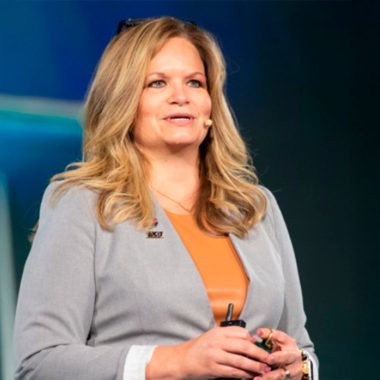As global populations climb and climate volatility intensifies, agriculture faces mounting pressure to evolve. For Nigerian software engineer and agritech innovator Mfon Uwa, the solution lies in leveraging technology to help farmers become more productive, sustainable, and resilient. With over a decade in software development and a personal commitment to supporting African farmers, Uwa is betting on a future where data, precision, and innovation converge to secure food systems in vulnerable regions.
Agriculture at a Crossroads
Uwa’s motivation to enter the agricultural technology sector arose from a real-world understanding of farming’s fragility. “A few years ago, the United Nations FAO predicted the world population would grow significantly. That means we need to produce more food,” Uwa explains. “But in recent times, the weather has even been a challenge. Farmers rely on weather patterns and seasons to start planting, but what they’ve been depending on is now a challenge to their livelihood.”
In regions like Nigeria, where many farmers still depend on traditional methods and have limited access to data, erratic climate conditions can be catastrophic. For Uwa, technology is now a necessity. “Without aligning with technology, I don’t think they will be able to survive,” he says.
A Data-Driven Approach to Livestock and Crop Farming
Uwa’s initial focus has been the poultry sector, a significant part of Nigeria’s agricultural economy. “We started with livestock farmers, narrowing down to poultry farmers because in that industry, 70 per cent of the costs are on feeding,” he explains.
The team observed a widespread lack of awareness around feed conversion ratios, which refers to how efficiently an animal turns feed into desired outputs like meat or eggs. “If you overfeed, you’re wasting money. If you underfeed, you can’t even get to a certain point. We’re trying to make sure that with the feeding pattern, farmers have recommendations on where they should go and how it should work,” Uwa says.
Expanding into crop farming, Uwa’s platform is now piloting programs with commercial-scale operations managing over 100 hectares of land. By integrating soil moisture monitoring, drone surveillance, and digital insights, the goal is to optimize input use and maximize yield. “We don’t want to focus on smaller ones just yet. We are experimenting with farmers’ associations that manage large-scale farms to build a scalable model first,” shares Uwa.
Building Resilience Through Precision
Technology’s impact on agriculture is perhaps most visible in its ability to enhance precision. “With precision agriculture, you don’t have to waste so much water to irrigate the entire farm,” Uwa says. “You channel your resources to where it’s needed and conserve some. That’s just a small part of how AgTech helps.”
Beyond water efficiency, predictive analytics for weather and crop health are central to Uwa’s vision. His team is currently testing climate monitoring solutions that could offer early warnings and recommendations. “We’re using it now in some locations, but we’re still testing. If successful, it could give predictive insights before things happen,” he says.
Focus and Innovation: The Future of Uwa’s Platform
Rather than spread efforts thin across a broad crop base, Uwa is prioritizing depth over breadth. “For crops, we’ve decided to focus on just two: maize and soybeans. We want to be a leader in that,” he said. These staples are central to local diets and commercial trade, making them ideal candidates for technology-driven transformation.
Uwa also sees transformative potential in emerging technologies such as robotics, IoT, blockchain, and artificial intelligence. “Even in our app, we’re bringing in AI to interact with farmers as a companion,” he adds. The idea is to create a digital assistant to offer timely guidance and support in local contexts.
Aligning Mindsets with Technology
While the tools are increasingly available, Uwa emphasizes that the biggest hurdle is adoption. “The use of technology will certainly change things if people adopt it,” he says. For many smallholders, particularly in Africa, embracing data and digital tools requires a shift in mindset. “I hope we can change how we think and do things in agriculture. Farmers must understand that monitoring weather patterns and using technology will help them adapt to changes and improve their outcomes.”
For Uwa, the stakes are more than economic—they are existential. His work is rooted in the belief that the right mix of innovation and education can empower farmers to not just survive but thrive in a changing world.
To follow Mfon Uwa’s work or learn more about his agritech platform, connect with him on LinkedIn.





